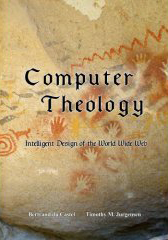PRESS
COMPUTER THEOLOGY |
||||
|
the need of belonging, beyond the physiological and
safety needs that we began to see addressed in the initial sensori-motor stage.
Thus, we observe that the progression through the developmental stages
continues to take us up the ascending needs hierarchy. In essence, as part of
our development from infancy toward adulthood, we acquire physical and
cognitive mechanisms that will be instrumental in our ultimately being able to
respond to the stimuli engendered through needs based appetites. During the
symbolic stage, a child learns to use symbols as representative of objects or
groups of objects. Children initially consider all objects from their own
perspective. In a process he calls decentration,
Piaget presents in The Psychology of
Intelligence the steps leading children to perceive themselves as agents in
an independently autonomous world. A simple example of centration is the
initial perception by the child of the mountain getting higher as the walk
progresses. A more intricate one is that of the child viewing pearls
transferred from one vase to another and considering that, depending on the
form of the second vase, there are more or fewer pearls in it than in the
first. It can take up to the age of seven or eight years for the child to
associate certain rotated or inverted representations of objects with the
correct corresponding objects. Eventually, the process of decentration leads us
to acknowledge the world as the world acknowledges us. We suggest that its
progression indicates the early stages of satisfying the need for esteem. This
is accomplished through reflection on one’s position in the world. We would
also observe that this takes the child down the path toward metaphorical
understanding and reasoning. Within this stage, the child is able to
conceptualize existence, both of objects through symbolic representation and of
action responses (events) through establishment of context. During this
stage, fantasy has a strong influence on the understanding and belief system of
the child. This would seem to relate to the willingness to search for causality
in the supernatural when one’s understanding of the physical ecosystem is
limited. Indeed, given the propensity for evolutionary based development to
reflect phylogenetic processes in ontogenetic characteristics, this stage
suggests some parallels with the mythic cultural phase of human memory
development as described by Merlin Donald. In addition,
during this stage the fact that cognitive processes are still primarily
egocentric suggests that development has not yet reached the level of fully
relating to the higher levels of the needs hierarchy. In particular, the
individual is not yet fully capable of responding to cognitive needs at or
above esteem. Full logical thought is not yet supported, which leads us to
think that process-based trust lags the causality-based trust mechanisms that
we discussed in the previous chapter. Around the age of seven, a child transitions into the concrete operations stage of development. This stage lasts from about seven to about eleven years of age and is characterized by the onset of logical thought, particularly as it relates to concrete objects. One facet of this basis in logic is the ability of the mind to quantify in a number of ways, such as numbers, space, time, speed, causality and randomness. This capability of recognizing conservation represents a calibration of the mind’s involvement with the symbolic representations grounded in the sensori-motor environment of the body. Accommodation as a learning process tends to increase during this stage. Essentially, the individual’s mind becomes engaged in developing truly personal rules of interaction, with such concepts of socialization as duty, heteronomy, moral realism and autonomy. We haven’t used the term policy for a while, but this stage of development certainly invites interpretation as one in which personal preferences are developed that will guide participation in formally defined social ecosystems. During this stage, the individual’s level of egocentric cognition diminishes, with an increasing propensity for immersion in the constraints of externally defined social ecosystems. |
||||
|
||||
© Midori Press, LLC, 2008. All rights reserved for all countries. (Inquiries) The contents of ComputerTheology: Intelligent Design of the World Wide Web are presented for the sole purpose of on-line reading to allow the reader to determine whether to purchase the book. Reproduction and other derivative works are expressly forbidden without the written consent of Midori Press. Legal deposit with the US Library of Congress 1-33735636, 2007.
|
ComputerTheology Intelligent Design of the World Wide Web Bertrand du Castel and Timothy M. Jurgensen Midori Press, Austin Texas 1st Edition 2008 (468 pp) ISBN 0-9801821-1-5 |
Book available at Midori Press (regular) |
